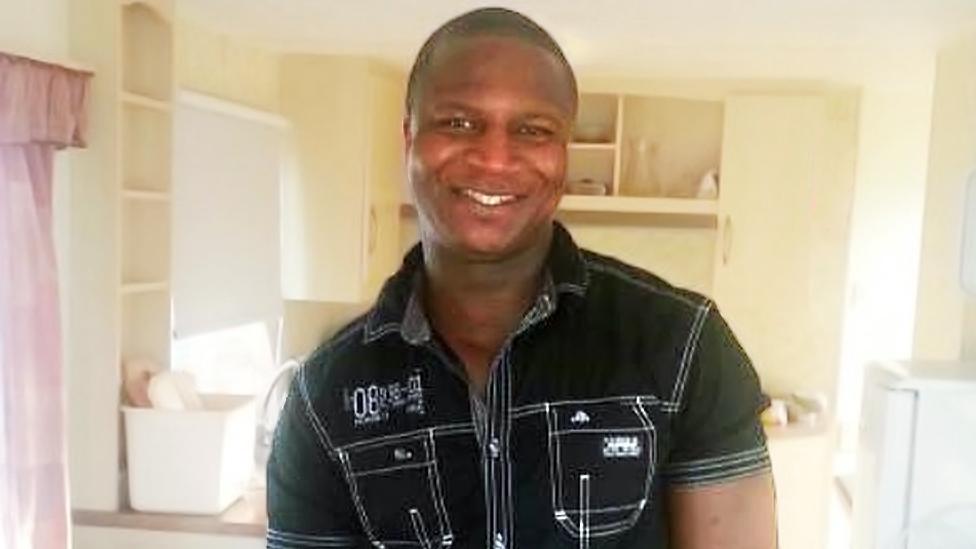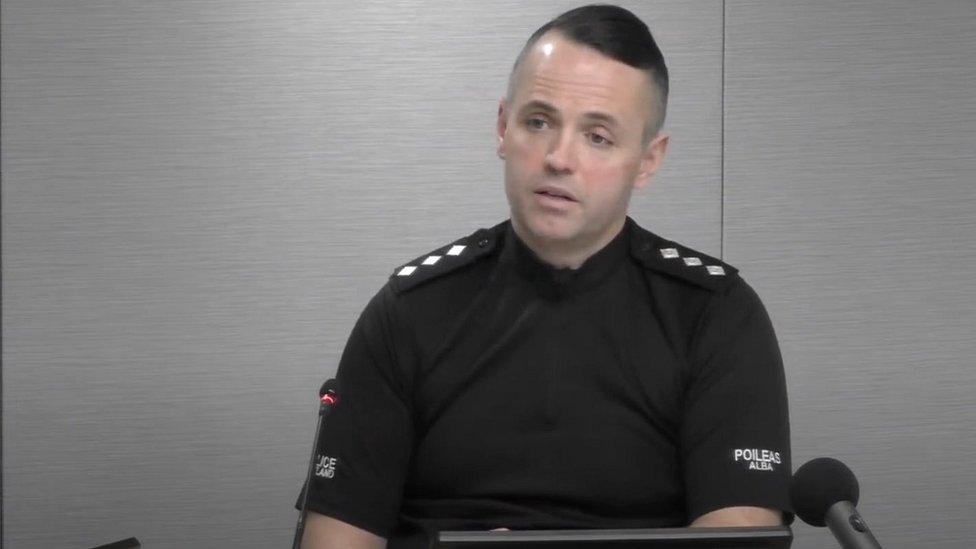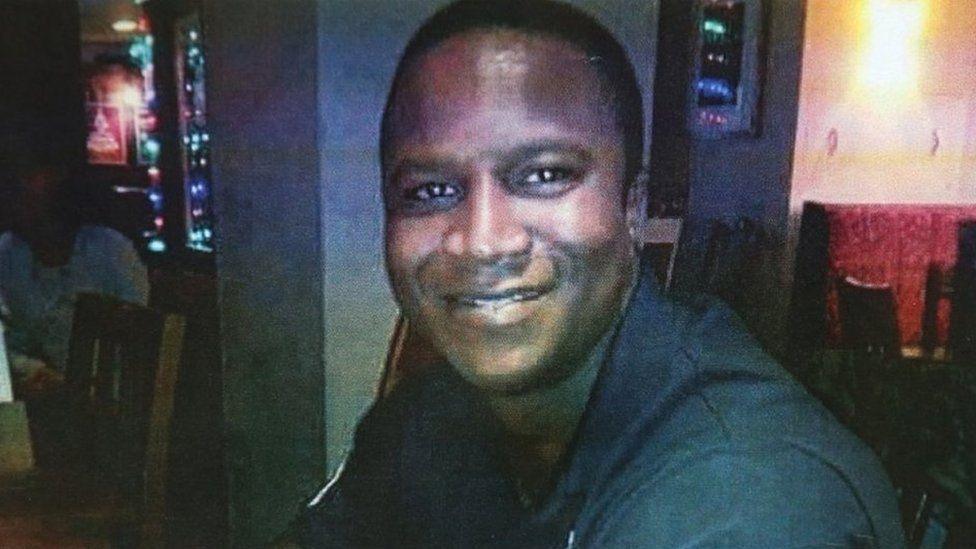Sheku Bayoh inquiry: police officers not separated after death
- Published

An inquiry into Sheku Bayoh's death is examining whether race was a factor
Police officers who arrested Sheku Bayoh were allowed to stay together against the wishes of independent investigators, an inquiry has heard.
In the hours after Mr Bayoh died in 2015, the Police Investigations and Review Commissioner (PIRC) asked for the officers to be kept apart.
The inquiry was told the logistics of the police station in Kirkcaldy, Fife, meant this was not possible.
Mr Bayoh, 31, died in the town after a violent confrontation.
He never regained consciousness after being restrained by officers in the street, and was found to have suffered 23 separate injuries.
The inquiry is looking into the circumstances of the father-of-two's death, and whether race was a factor.
It has previously heard that officers involved in the incident had discussed it in the canteen, where they were left for hours.
The inquiry in Edinburgh heard Ch Insp Colin Robson was on shift on 3 May 2015 when Mr Bayoh died in hospital.
Officers involved in the arrest were taken back to Kirkcaldy Police Office, where Ch Insp Robson, who was a detective inspector on the day, advised them not to talk about the incident.
Asked by inquiry senior counsel Angela Grahame KC if he told them not to confer, he said that while he did not use that word, he said effectively the same.
He told the inquiry: "I said to them basically: 'Look, because we need to get an account from you, in what fashion because of the numbers and logistics involved, please don't talk about it."'
Ch Insp Robson asked them to relax and watch television, he added.
He told the inquiry that speaking about the incident could "influence or taint" opinions on what happened.
"The less they talk about, it means they maintain their own thoughts around about and recollection of the events," he said.
Ch Insp Robson said the request from Det Supt Pat Campbell, from PIRC, to separate officers "didn't sound like an order, and if it was then I went against it".

Ch Insp Colin Robson said there was a moral obligation on officers not to discuss the incident
Separating them would not have been possible because of the logistics at Kirkcaldy Police Station, he said, and they needed to protect the welfare of the seven officers, who were in a state of shock.
"By bringing them back and putting them in one place we had more control, as opposed to that splintered, fragmented approach of isolating them, being on their own," he said.
Each isolated witness would need an officer to sit with them but control measures could achieve the same effect - making sure they did not discuss the event, the inquiry was told.
Other officers and representatives had been in the canteen with the officers involved.
When asked if placing an independent person in the room "slipped through the net" by Ms Grahame, he replied "potentially".
Ch Insp Robson added: "It was putting that moral obligation on them, that professionalism to just, look, don't discuss it."
The inquiry previously heard Mr Bayoh's partner, Collette Bell, was not told that he was in police custody when he lost consciousness when she was informed of his death.
Asked if there was an attempt to hide the interaction with the officers, Mr Robson told the inquiry: "Absolutely not, and why would it be when it was so public facing? If it was an attempt, it would soon very quickly be found out."
He said that looking back on the incident, he now "would have provided the same update I had to senior management in effect", and added he would potentially tailor it to suit a member of the public.
The inquiry, before Lord Bracadale, continues.
Related topics
- Published28 February 2023

- Published9 February 2023

- Published8 February 2023

- Published1 February 2023

- Published31 January 2023

- Published2 December 2022
